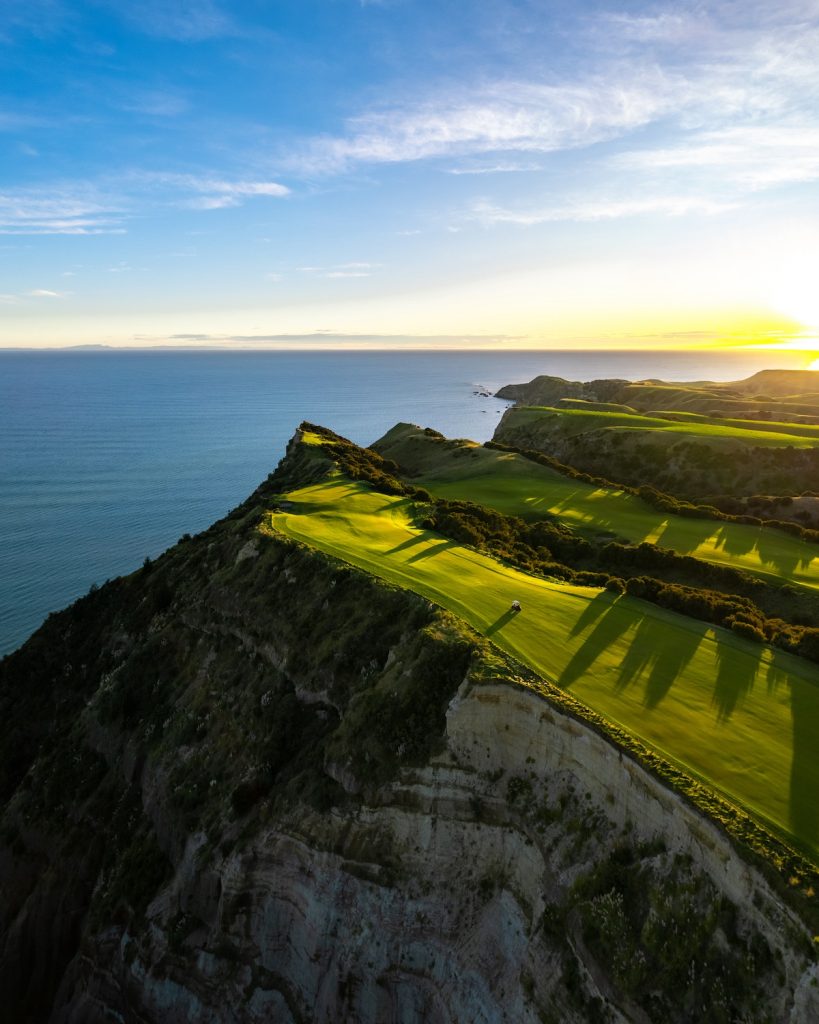The word has a professional ring to it, but “renaissance” is probably the wrong way to describe golf course architect Tom Doak’s burgeoning creative output these days. Ever since the 2001 christening of Bandon Dunes Golf Resort’s Pacific Dunes in Bandon, Oregon, Doak and his firm, Renaissance Golf Design, have proved extraordinarily productive. And yet, Doak has never been quite this busy, with original designs scheduled to open on three continents and more renovation/restoration work that we have the space to detail here.
Surely this state of affairs reflects a healthier golf development market in 2024, especially here in North America. From 2008 to 2022, the U.S. course stock suffered an annual net loss of some 150 18-hole facilities. That bleeding appears to have stopped.

However, even if we posit that Doak & Co. are busy because the market has turned, and that they never stopped doing exceptional work, it’s also clear that his company has evolved into something uniquely structured to handle this glut of projects. Renaissance has the feel of a decentralized collective, with associates empowered to do work beside the principal, make calls in his place, or delegate details to the firm’s crackerjack retinue of for-hire shapers. That Doak himself remains so busy, within this structure, is just more evidence of what a motivated, flexible, canny, risk-taking designer and businessman he has come to be.
Case in point: His work at Sand Valley in Nekoosa, Wisconsin. Doak’s heathland homage, Sedge Valley, opens this summer. No one else is building full-throated tributes to The Berkshire, not here and not in the U.K. But Doak had yet to design anything in this genre, so here we are: box checked. That Sedge Valley will play to a par of 68 just underlines the fact that this guy remains primarily interested in serving the whims of his clients, and himself.
Also, “When you don’t have to think about stretching a course to 7,300 yards,” Doak points out, “you can start thinking about finding cool green sites, without worrying about how close together they are.” In light of recent rulings on reduced ball flight, that’s some creative, money-where-your-mouth-is commentary — from the man responsible for the reversible Loop at Forest Dunes Golf Club in Roscommon, Michigan, and The Lido — his computer-aided replica of Charles Blair Macdonald’s long-lost masterpiece — which opened in late 2023, also at Sand Valley.

For all his talents, Doak’s superpower may be the consistent ability and/or good fortune to cultivate clients who control such massive parcels of sandy, golf-friendly terrain. Bandon. Sand Valley. Streamsong. Is there a more sprawling resort entity in North America than Pinehurst Resort? Naturally, the Doak-designed No. 10 course will open there on April 3.
Doak has shown the same knack overseas. His new 18 at Cabot Highlands (formerly Castle Stuart, just northeast of Inverness) will also welcome resort golfers sometime this year — beside an existing track designed by Gil Hanse. Down in New Zealand, Doak recently circled back to the consortium behind Tara Iti Golf Club, the wonder links that ranks higher than any other Doak original. The developers there just happen to own and control thousands of acres directly down the coast. Coore & Crenshaw designed the first 18. The Doak-designed North Course at Te Arai Links opened in October 2023. During construction, the architect found time to regrass the fairways and greens at Cape Kidnappers Golf Course, his first Kiwi effort (2005) and still a world top-50 course in its own right. “I’ve got a soft spot for Cape,” Doak says. “There’s just nothing else like it.”
It seems relevant to point out that Doak, now 62, is no spring chicken. He broke into this business early in the 1990s, with a single golf course to his name — at High Pointe Golf Club, near Traverse City, Michigan — and ready-made books replete with pointed critiques of other folks’ design work — “The Anatomy of a Golf Course” (1992) and “The Confidential Guide to Golf Courses” (1996). That brash debut endeared him to very few, but he’s outlived and outperformed those contemporaries. The early days also branded him a “minimalist” and a “traditionalist.” The man is clearly in love with sand, but the longer he works, the less those labels seem to apply. Perhaps because he’s never given much truck to sacred cows, even his own.
When, for example, High Pointe closed during the 15-year downturn, his online acolytes gasped (while detractors and competitors perhaps gloated a bit). Yet when a Florida tech entrepreneur recently approached Doak about reimagining High Pointe — restoring just six of the original 18 holes (the others having been repurposed as part of a hops vineyard) — Doak signed back on, the sanctity of his original work be damned.
It goes without saying this private $24 million reincarnation will reopen this summer.
